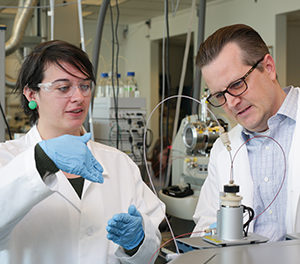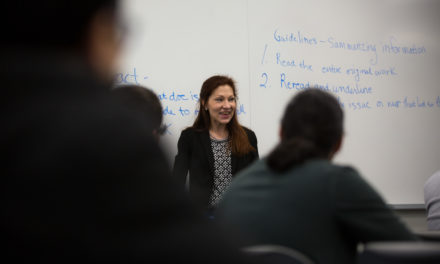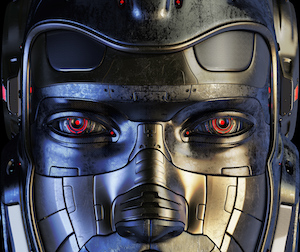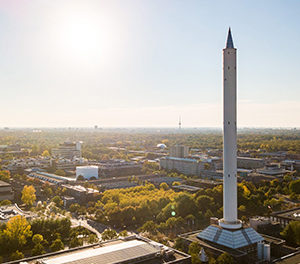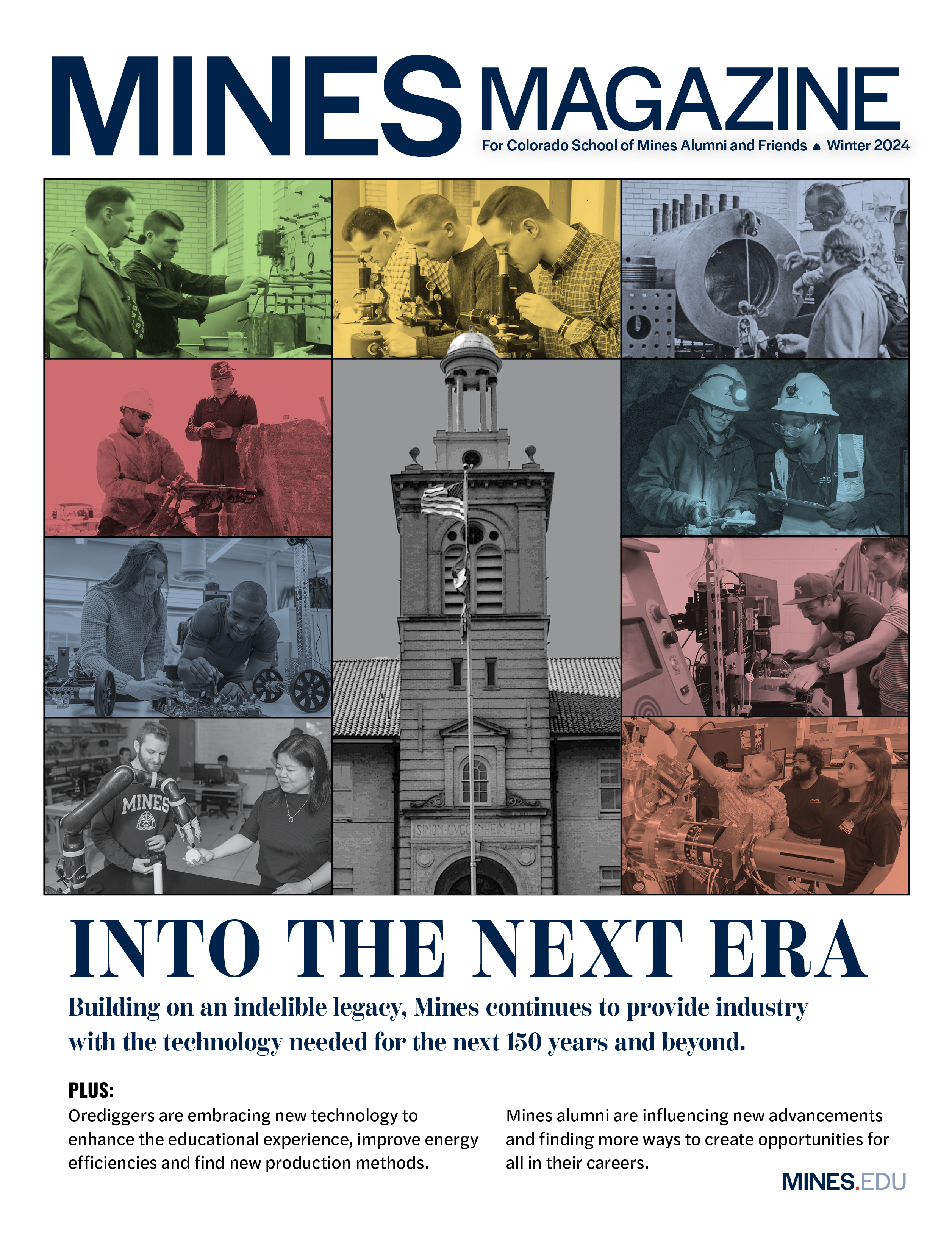Intelligent design

Four years ago, Jered Dean ’04, MS ’09 got an unexpected call from his brother, Barry Dean, asking for help.
Barry, an award-winning songwriter based in Nashville, was worried about his daughter Katherine, now 20, who has cerebral palsy and uses a motorized wheelchair. He’d recently heard about a woman whose wheelchair tipped over while she was driving it, causing serious injuries. He wanted to prevent something similar from happening to Katherine and, maybe someday, other wheelchair users.
But where to begin? He figured if anyone would be able to design and build a brand-new system for making power wheelchairs safer, it would be his younger brother Jered. With two engineering degrees from Mines and experience in industry and academia, not to mention a passion for improving the lives of others, Jered was eager to help. He flew from Denver to Nashville and spent a long weekend with his brother, studying Katherine’s wheelchair and talking through the problem.
“The wheelchairs themselves can weigh 300 or more pounds without a person in them, and most of them will tip over with as little as a few inches of drop-off from a curb,” said Jered. “That can be catastrophic for the person in the chair. The injuries from tip-overs and collisions are serious.”
That weekend project in early 2017 became an all-consuming passion for the two brothers. After developing some simple prototypes and experimenting with different technologies, Jered eventually scaled up to a sophisticated hardware and software platform that attaches to a power wheelchair and helps users avoid collisions and sharp drop-offs while maintaining their independence. The two brothers named the new device LUCI, a nod to Katherine’s favorite Beatles song, “Lucy in the Sky with Diamonds.”
Today, LUCI is available to wheelchair users around the country. This revolutionary device fills a critical gap in the power wheelchair industry, which has largely focused on improving wheelchair suspension and alternative driving mechanisms (for users who can’t steer a traditional joystick with their hands).
“There was really cool stuff going on there, but in terms of actual electronics and integrating the wheelchair into the modern world, there just wasn’t anything,” said Jered, who directed Mines’ engineering and computational sciences capstone design program before co-founding LUCI.
LUCI is an after-market accessory that uses millimeter wave radar technology, stereovision cameras and custom sensors to analyze the wheelchair’s surroundings and prevent it from colliding with other objects and avoid dropping off curbs or ramps. LUCI can smoothly increase and decrease the chair’s speed to help keep the user safe, even bringing the chair to a complete stop if necessary. The system can also sound a precautionary alarm if the wheelchair is at risk of tipping over, as well as send out alerts to specific loved ones if the chair is upended.
Each LUCI system incorporates the user’s steering reaction time and features Wi-Fi, cellular and Bluetooth connectivity. Users can view their LUCI data—and share it with others, if they choose—via a special mobile app and website.
“It adds a brain and connectivity to that wheelchair,” Jered said. “We turn a dumb wheelchair into a smart, connected modern device.”
Many of this young company’s 15 employees attended Mines, including LUCI’s first employee, senior engineer Karl Grueschow ’17, a nontraditional student who earned his mechanical engineering degree in his 40s.
They’re valuable members of the LUCI team because of the technical rigor and hands-on learning experience they gleaned in Golden, Jered said, as well as Mines’ emphasis on using innovation, entrepreneurship and engineering for good.
“There were a lot of professors at Mines who were very forward-thinking and, like Jered, were looking out into the world and trying to figure out, ‘How do we fix things that we’re facing right now? How do we improve life?’” Grueschow said. “We were always encouraged to think larger than ourselves.”
The LUCI team continues to improve the device, including expanding its compatibility with as many different power wheelchairs as possible. They hope their invention helps move the wheelchair industry forward while also sparking broader conversations about accessibility and inclusion in tech. LUCI helps bridge the divide between people living with disabilities and modern technology, while at the same time opening the door for new mobility-related research breakthroughs and inventions.
“Katherine and the other folks we work with every day have been left behind when it comes to technology,” Jered said. “And they deserve better.”

